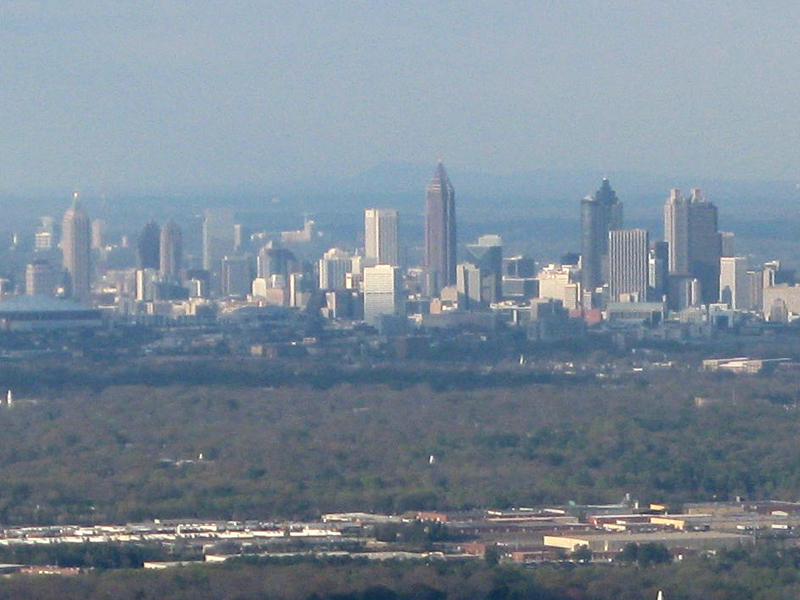New Smog Rules Could Be Tough On Georgia

Atlanta’s air quality has improved, but it’s still over the U.S. EPA’s 2008 limits.
Atlanta has struggled to meet federal limits on the pollution that causes smog, and those standards may get tougher. The U.S. Environmental Protection Agency sets limits on ground-level ozone, also known as smog, and the agency has a court-ordered deadline to release a new standard on Thursday.
Smog forms when cars, factories and power plants release chemicals, that than then react with sunlight. Health and environmental advocacy groups support reducing smog levels, while some business groups argue that tougher regulations are too expensive.
The EPA last updated its ozone standard in 2008, and Atlanta has not yet complied with it.
“If EPA drops it further, it could affect other parts of the state,” said Karen Hays, chief of the Georgia Environmental Protection Division’s air branch.
Hays also said she’s not sure there’s much more the state can do about ozone.
“Additional emission reduction will have to come from regulations that are implemented by the federal government,” said Hays. “Things like the vehicles’ miles per gallon, the changes in gas. Things like that.”
Other federal rules on power plant emissions could also help reduce ozone in the future.








